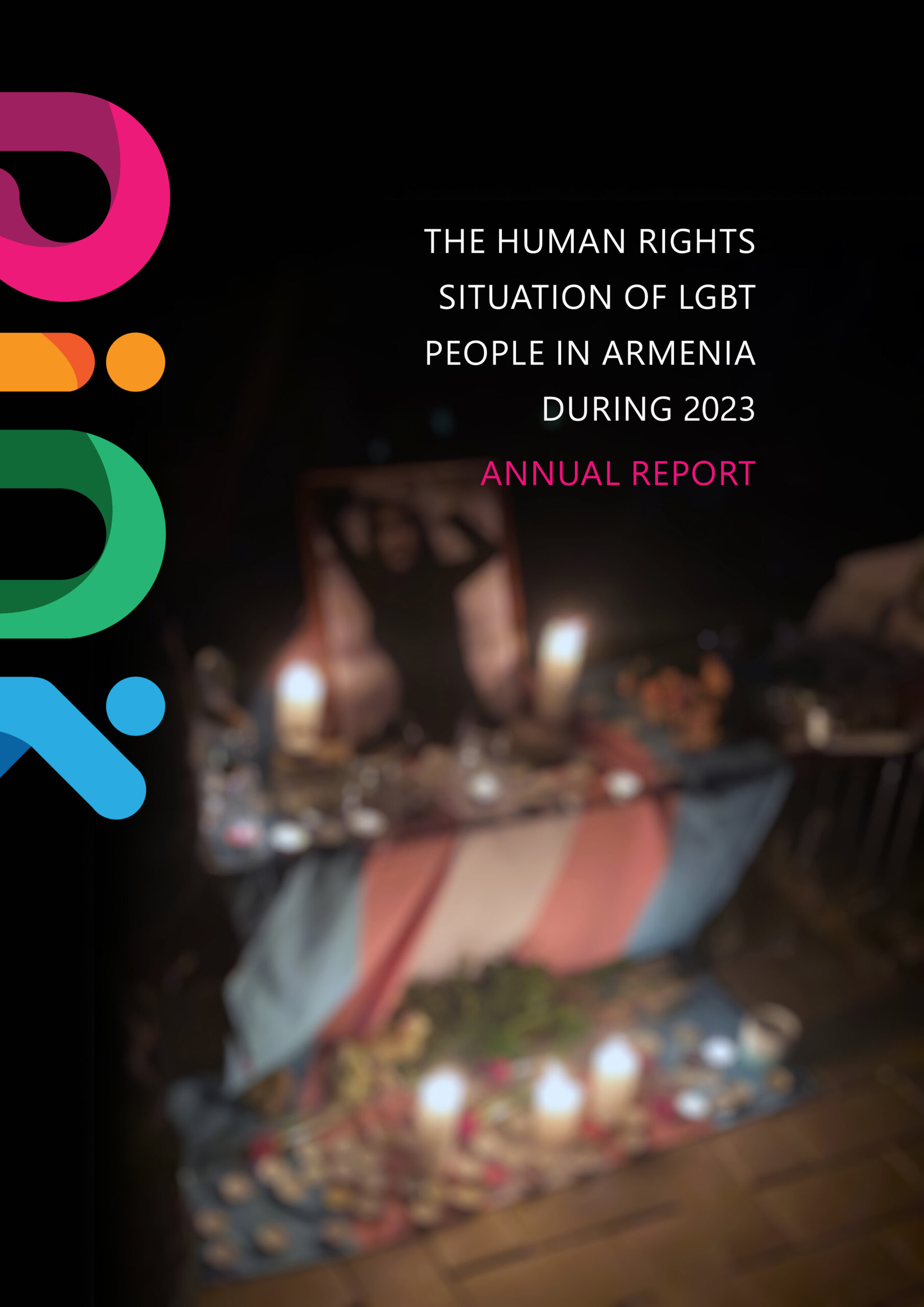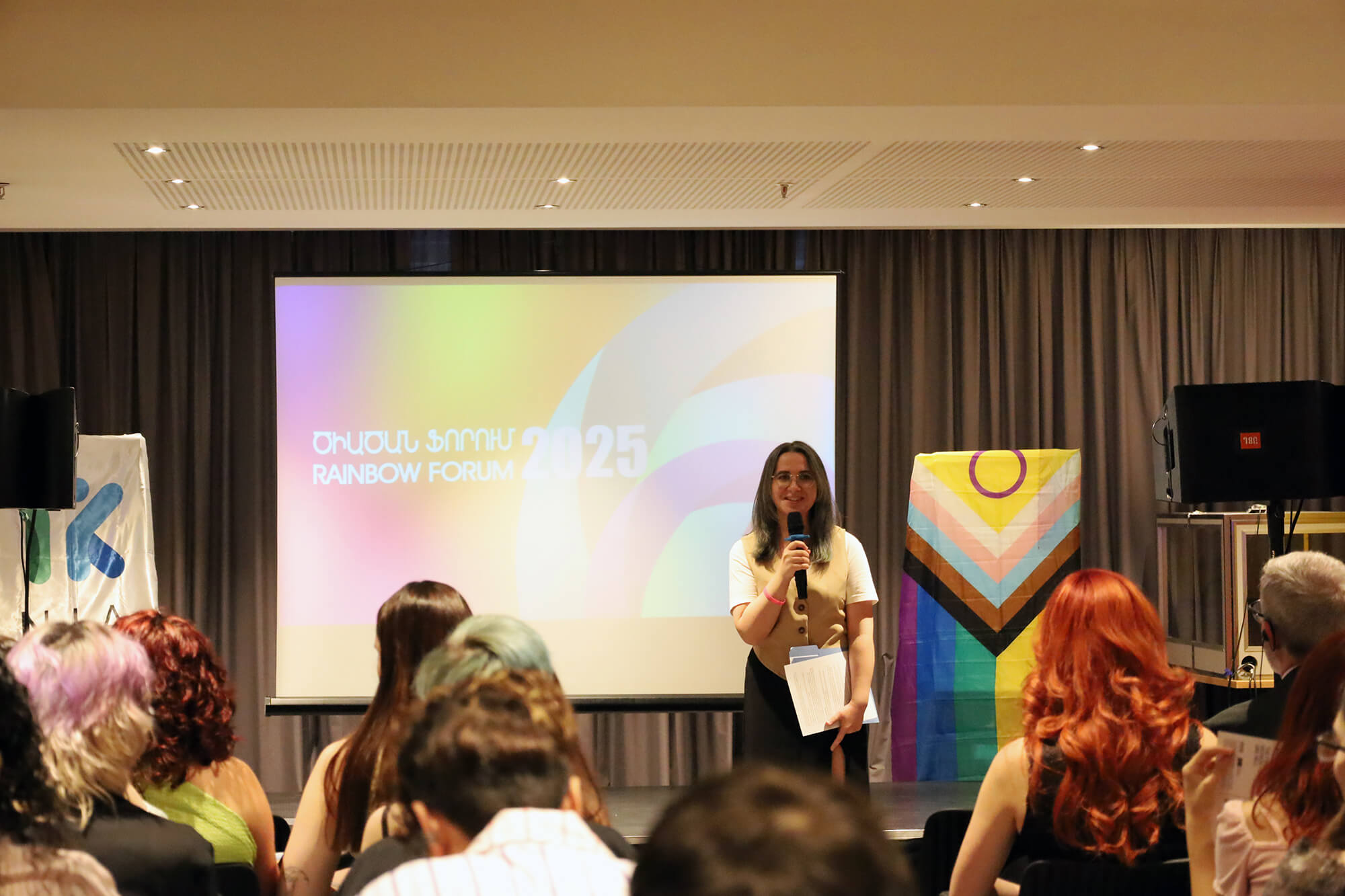Pink’s annual report on the Human Rights Situation of LGBT people is released

Pink Human Rights Defender Non-Governmental Organization annually compiles a report summarizing documented violations occurring during services provided to LGBT people. This report focuses on the human rights situation of LGBT people and relies on data obtained from beneficiaries’ submissions and results from the organization’s monitoring activities.
The first section of the report compiles recorded violations for which Pink Human Rights Defender NGO provided consultation and essential support. Cases are categorized according to the rights infringed, though they may encompass violations of multiple rights. Each section provides a concise overview of the violated right in the given situations, drawing upon international documents and interpretations by relevant bodies acting upon these documents. This aims to present the scope of the right’s interpretation, the state’s obligations for their protection, and the necessary measures to clarify the rationale behind qualifying the act.
In 2023, LGBT individuals continued to face discrimination and violence across various aspects of life, including family, the armed forces, law enforcement, care facilities, educational institutions, and public spaces. Throughout the year, 260 individuals sought assistance from attorneys and lawyers at Pink Human Rights Defender NGO, receiving consultation or various legal support. The alarming increase in registered offenses stands out when compared to previous years. In particular, 51 cases were documented, with 49 involving individual victims and 2 categorized as group cases involving severe, criminally accountable expressions of hate speech directed towards the LGBT community. These group cases included multiple offenders, but the expressions were connected within a singular context.
Out of the documented cases, 22 involve cases of domestic violence. In five of these cases, the victims initially wanted to file a complaint with law enforcement authorities. However, four of them later decided against filing a complaint or reporting the crime altogether, and one case was suspended by the investigative body, citing the justification that the parent intended to address a perceived “sick” phenomenon.
There are four cases of physical violence recorded, with two victims expressing fear of applying to law enforcement authorities. In the other two cases, criminal proceedings were initiated, but the current status of the process remains unknown.
Six cases of threats to life or health were documented, with victims turning to law enforcement authorities in only two instances. One of them later withdrew the complaint, while the investigation for the second case is still ongoing.
Two cases of disseminating information regarding private life were recorded, but the victims chose not to contact law enforcement in both instances.
One case of murder and one case of suicide were recorded, leading to the initiation of criminal cases. However, investigations for both incidents are still ongoing.
Additionally, five cases of ill-treatment by law enforcement bodies were documented. Complaints were filed, and three criminal cases were initiated, but one victim later withdrew their complaint.
There was one case of violence during military service, another case in a psychiatric institution, and a third case in a juvenile care center. In all three cases, the victims opted not to file a complaint with law enforcement bodies.
There were five recorded violations within the educational system, and in none of these instances did the victims choose to contact law enforcement bodies.
Out of the total registered cases, only 12 victims sought assistance from law enforcement bodies. Two additional cases involve murder and suicide, where the investigative body is obligated to initiate criminal proceedings. The continued mistrust towards law enforcement agencies by victims, as observed in previous years, can be attributed to several factors, including:
- Mistreatment by law enforcement agencies, mockery, and justification of violence,
- Dissemination of information related to the personal life of victims by the authorities investigating the case, including within families,
- Ineffectiveness of investigating cases leading to impunity,
- Fear of facing further violence as a consequence of filing a complaint.
The second part of the report addresses hate speech, briefly explaining the criteria used to define and identify it and the legal regulations outlined in international documents and the domestic legal system. The report also presents various cases of hate speech, each with different degrees of danger; some are punishable under the RA criminal law, while others are not.
Numerous instances of calls for violence, justification of violence, and preaching were recorded, although none of these received attention from law enforcement bodies.
In the presentation and quoting of hate speech manifestations, the report focuses on selecting only sections of expressions of hatred and intolerance that include calls for violence or justification of violence. Phrases containing profanity were intentionally excluded.
In the second section of the report, we seek the reader’s understanding as we quote examples of hate speech, acknowledging that they can potentially cause psychological stress and depression.





